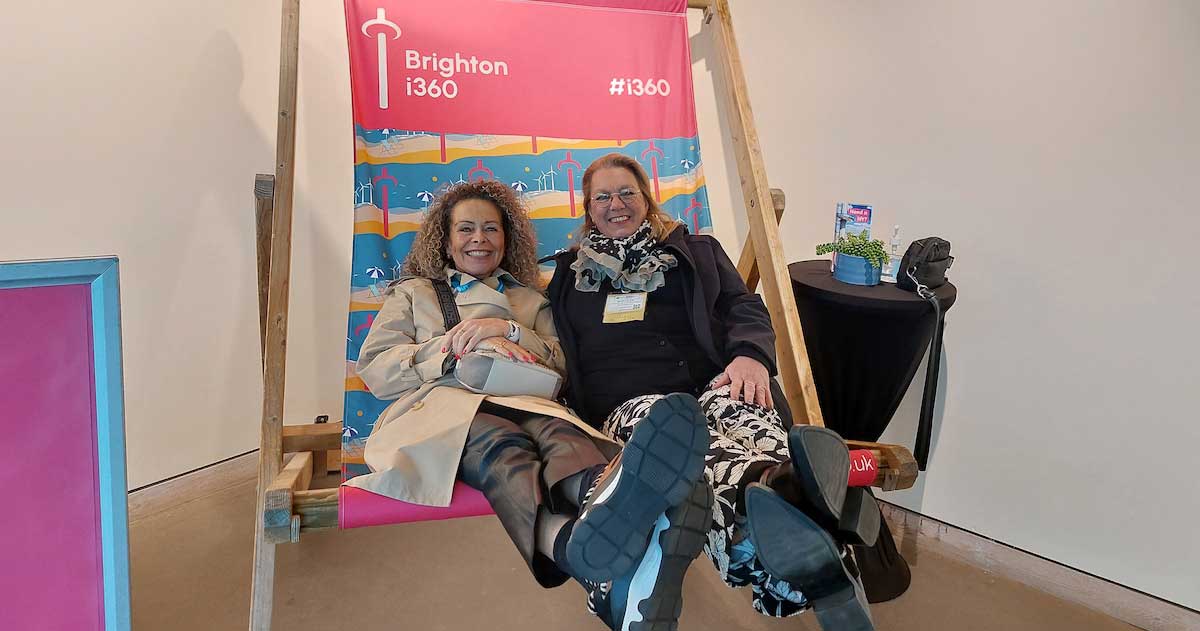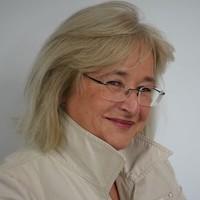MPI’s 2023 European Meetings & Events Conference (EMEC) was three years in the making, and Brighton—a seaside resort on the south coast of England—was the perfect host city for the event.
Brighton has a unique history as a health resort dating to the early 18th century. The small fishing town became one the world’s first centres for Thalassotherapy when Dr. Richard Russell started to encourage his patients to bath in (and drink) seawater. After Russell’s death in 1759, it was the prince regent, the later King George IV, who built a townhouse and started the construction of the exotic-looking Royal Pavilion. Today, the pavilion is still a remarkable landmark and used as a conference venue.
Another event venue that dates to the Regency period is the aquarium (now called SEA LIFE Brighton). The building includes an event centre and a music hall. In the rocking 1960s, the band The Who was featured regularly. (Fast-forward insider’s tip: The Who will finish their 2023 U.K. tour with a concert in Brighton later this summer.)
The Regency period was flamboyant and modern, and in the following centuries Brighton has maintained its attraction for individuals who break the mould. In the 1960s, the mods and rockers came to party, and these days Brighton has a large LGBT+ community. Inclusivity has become part of Brighton’s DNA.

For the global MPI community, the European connection has always been a strong one. Outside North America, the European chapters were the first to come on board. The European market is important for many reasons, including as a feeder market for the U.S., and vice versa. There are many similarities in the way business is conducted both in the U.S. and in Europe. In a way, you could say that the association has a possibility to test concepts and visions in the European market before rolling out new ideas in the larger U.S. market. For all these reasons, EMEC is one of the flagship annual events on the association’s calendar.
Following the pandemic, MPI is still is the largest global trade association for the event industry. For over 50 years, the primary aim has been to provide members worldwide with the latest industry insights and trends. It is the primary advocate for the global community of meeting professionals.
Members in Europe choose to join for a number of reasons. It may be to grow their personal professionalism and build a network of industry contacts. But most members will admit that there is something more—it is in the international community of meeting professionals where many people find lasting friendships and a sense of belonging that crosses cultural borders.
The meeting industry is cross-cultural by nature. People who work in our industry come from all nations and our clients and guests are global citizens. This aspect is even more evident in Europe because of the greater diversity of cultures and languages. Europe and the U.S. are about the same size (approximately 10 million km2), but the number of inhabitants in Europe is 740 million—more than twice the population of the U.S. You could say Europeans live ‘twice as close’ with their foreign neighbours.
Unity through diversity
MPI’s 2020 EMEC in Sevilla, Spain, was one of the last live events to take place before the live event world shut down due to the pandemic.
The 2021 edition of EMEC looked like it might happen when there was a lull in the pandemic scare. The same thing happened again in 2022, and now, after having been twice postponed, EMEC 2023 found the perfect location for an event that was first of all the joy of reunion: Brighton.
The importance of connecting an event with the event location was a trend that started before the pandemic and is even more relevant today. During EMEC, one day was dedicated to learning journeys where the participants were taken outdoors to experience workshops by local designers and producers.
One of the remarkable features of Brighton is that within easy walking distance there are historic hotels, ample meeting space, unique venues and hundreds of boutiques, music pubs and restaurants. You can walk to the venues or the beachfront and there is almost no need to drive.

One learning journey was a walk starting on the seafront leading to some of Brighton’s iconic meeting venues, while another group of participants went on a walking tour to discover the graffiti art in the streets of Brighton. Inspired by the creative process of graffiti artists, Robert Dunsmore, an independent creative director, embarked on a workshop that illustrates a new creator culture. Co-creation, multidisciplinary cooperation and decentralized creativity are the key success elements. The creativity that comes from a group effort can be fast, practical and much more effective than what one person alone can achieve.
The final learning journey offered a tour to Sussex and South Downs National Park with stunning countryside scenery where participants learned about local produce. A cheesemaker and winemaker showed their daily work and the visit ended with a sampling of the produce.
Drew Holmgreen, MPI’s chief brand officer, opened the meeting for the European chapter leaders at EMEC by evoking the economic importance of the global event industry. If it were to be compared to a nation, the events world would be the world’s 13th-largest economy. The lockdowns have clearly demonstrated that nothing can replace the value of face-to-face meetings.
So, what’s next in Europe?
Thijs Peters, director of sales and marketing for Postillion Hotels, joined MPI in 2016. As of January 2023, he is the chairman of the MPI European Advisory Council. Peters was an MPI chapter leader for the Netherlands and firmly believes in the importance of a strong European MPI representation. In the Netherlands, Postillion Hotels can be found at convention centres in major cities, and Peters understands the importance of the moment as well as the challenge. The industry is catching up with the high demand while having to find new talent and new partnerships.

At EMEC, Peters presented some figures forecasting phenomenal growth for the European events industry—growing from 41.4 billion euro in 2020 to 124 billion by 2030. By far the largest growth is within the meetings and conferences segment.
“This is a good time for growth for our membership and for the association,” he said. “We intend to continue working together within the European chapters and as soon as possible pick up where we left off before the crisis. There is a lot of innovation in the meeting planning industry here, especially connected to the importance of event design. Today’s audience is no longer impressed by an expert panel on a stage. That kind of presentation can easily be replaced by an online session. At a live event delegates want to experience, learn, network and be part of what’s happening. All of this was possible at EMEC in Brighton.”
Federico Toja is an Italian educated in France, Mexico and Switserland. He now is based in Monaco with his own consulting business. He is a true example of the meeting industry’s population of global citizens.

As MPI’s director chapter operations - Europe, his role for the past nine years has been to coordinate the administration and contact between the European chapters and the office in Dallas. His key role is to support the European Advisory Board with their plans to produce member value. At EMEC, he updated the European chapter leaders about upcoming plans and about the importance of the global connection.
“During the pandemic, MPI has lost some members and the European market is still working hard to attract new talent to the meeting industry,” he said. “The European event industry consists of lots of small independent operators working together on a basis of goodwill that is the culmination of years of trusted cooperation. Attracting the next generation into the association is of pivotal importance.”
As if to prove the point, Elodie Lortal has joined the European Advisory Council. She is French and has recently returned to Paris after a few years of overseas experience in Canada at the National Arts Centre in Ottawa. She is now sales executive at the Novotel Paris Centre Tour Eiffel and director of communications for the MPI France-Switzerland Chapter.

Lortal is a shining example of the talented and driven NextGen leadership that will set the path for the future. Her motivations for joining the association are, in no order of importance: personal growth, staying informed and exposure to the international community of meeting planners. She is already contributing to MPI Pulse Europe, a newsletter distributed to MPI members in the region.
“I realize that volunteering is not part of the European student culture in the way it is in the U.S. and Canada,” she says. “I believe that you get from an association what you put in. In Canada, I started a series of interviews portraying MPI members. I think the same thing can be done here in Europe. The important questions to ask are what’s the value proposition for the next generation and will current students and young people be interested in joining trade associations? I am keen to help strengthen links between European chapters, overcoming cultural and language barriers and showing that unity through diversity is the way of the future.”



